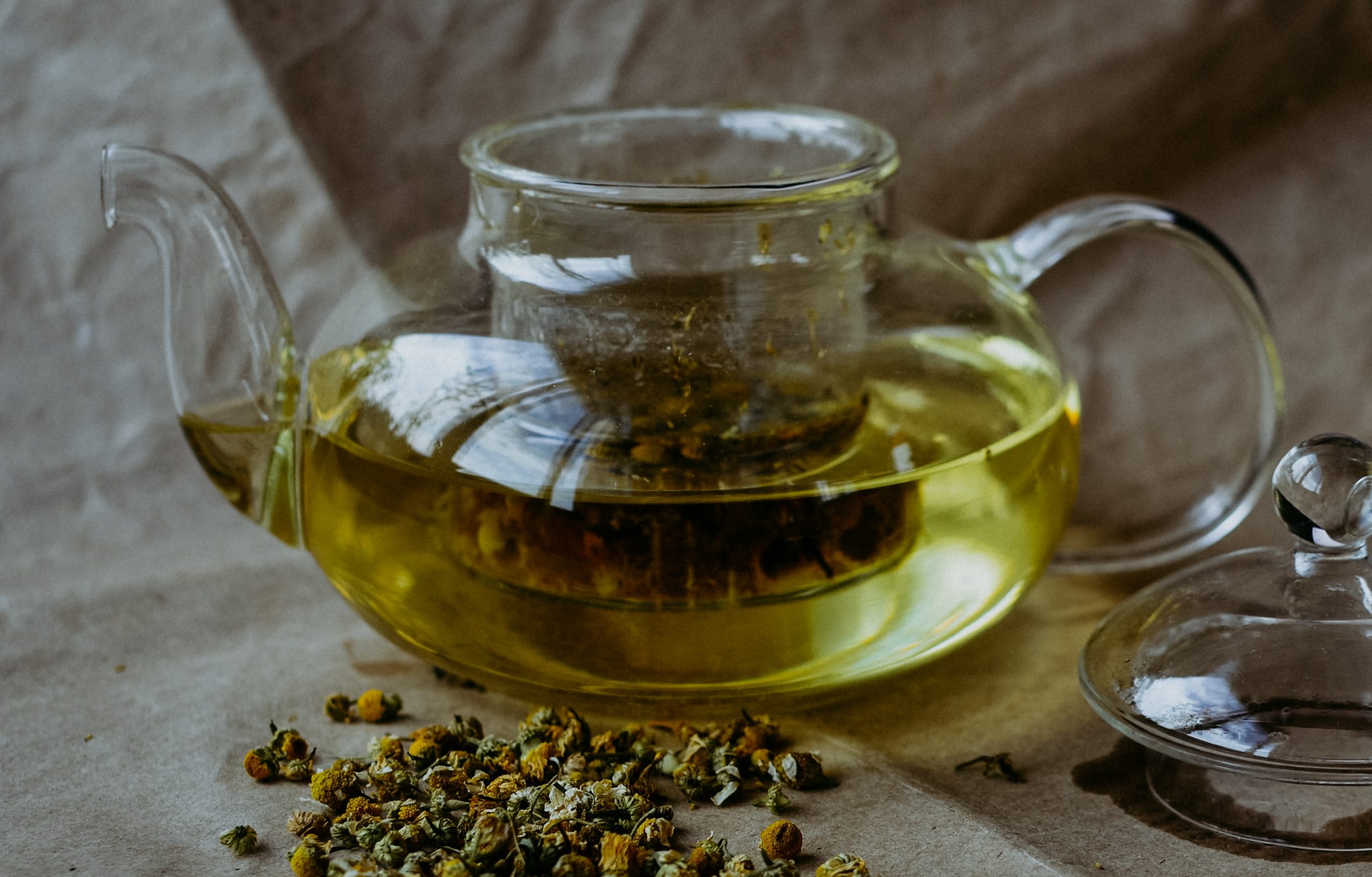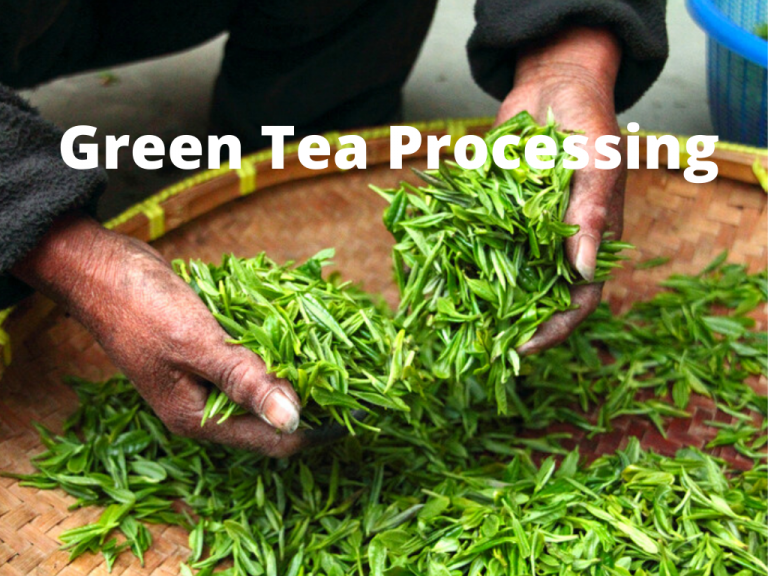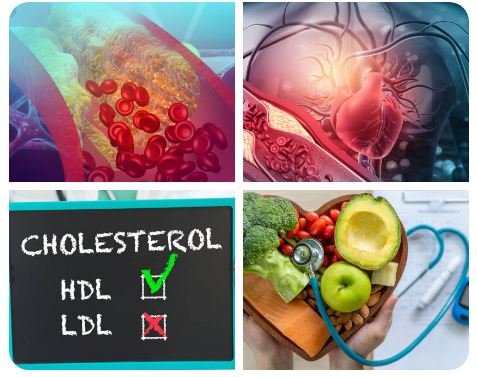Side Effects of Green Tea
There are two major varieties of Camellia sinensis tea plant which is used to produce the tea we drink. First one is Camellia sinensis sinensis. It is a smaller leafed variety used to produce green tea and white tea. The other one is Camellia sinensis assamica. It is a large leafy variety and the native place is India. It is widely used to produce strong black tea.
Processing of Green Tea
Harvested Camellia sinensis leaves are quickly heated for manufacturing green tea. Pan firing or steaming is used in the drying process. This process prevents too much oxidation and then green leaves turn to brown color. Most of the green teas are green-yellow or light brown in color. During this oxidation process, oxygen interacts with the cell walls of tea leaves, and the green color will lose. Before the rolling process, tea leaves are passed through steaming treatment. Then fresh, grassy flavor grew up in the leaves. Green tea leaves are not oxidized after rolling. Then light color and flavor can be preserved.
Advantages of Drinking Green Tea
Most Gastroenterologists and nutritionists have said that green tea contains so many health benefits. It contains healthy bioactive compounds. It is not only a hydrating beverage but, contains a large range of healthy compounds in the final drink.
Polyphenols are compounds that contain in the teacup and it helps to reduce inflammation and fight cancer. There is a special natural antioxidant called Catechin (Epigaliocatechin-3-gallate EGCG) contain in green tea. Natural antioxidants prevent cell damage. These substances reduce the formation of free radicals in the body and protect cells and molecules from damage. EBCB is the most powerful compound and is the main compound in green tea.
A small amount of minerals in green tea is given benefits to a healthy body. But there is a special thing you need to be concerned about when selecting a high-quality tea brand. Because low-quality brands contain excessive amounts of fluoride
For Improvement of brain functions
Green tea has the ability to boost brain function. Caffeine is a key active ingredient that is known as a stimulant. Caffein directly affects the brain and blocks an inhibitory neurotransmitter called Adenosine. Adenosine increases the firing of neurons and the concentration of neurotransmitters. Dopamine and norepinephrine are the most common neurotransmitters seen in green tea. Caffeine has a special ability to improve various aspects of brain functions like mood, vigilance, reaction time, and memory. L-thinene is another amino acid and a boosting compound in green tea which can cross the blood-brain barrier. L-thainene increases the activity of inhibitory neurotransmitters and has anti-anxiety effects. It also increases the production of alpha waves in the brain.
The combination of caffeine and L-thainene has powerful effects in improving function called the synergistic effect.
Increases fat burning
Green tea act as a supplement for fat burning and it boosts metabolic rate. Caffeine can improve physical performance by mobilizing fatty acids from fat tissue and using them as energy.
Lower the risk of some cancers
Uncontrolled growth of cells are caused to cancer. This is one of the world’s leading causes of death. Oxidative damage can lead to chronic inflammation, which can lead to cancers. Antioxidants help to protect against oxidative damage. Green tea is rich in antioxidants. Therefore, green tea compounds can reduce the risk of several types of cancers.
- Breast cancer is one of the most common cancers in women. Studies have proved, that women who drank the most green tea had an approximately 20%-30% lower risk of developing breast cancers.
- Man who drank green tea had a lower risk of advanced prostate cancer.
- Protect the brain from aging
Alzheimer’s disease and Parkinson’s disease are the most common neurodegenerative diseases and involve the death of dopamine-producing neurons in the brain. Catechin in green tea can have various protective effects on neurons and possibly lower the risk of Dementia.
Reducing bad breath
Catechins in green tea also have benefits for oral health. Catechins can suppress the growth of bacteria in the mouth potentially lowering the risk of infections.
There is a very common bacteria living in the mouth called Streptococus mutans. It causes plaque formation and is a leading contributor to cavities and tooth decay. Catechins are included in green tea. It can inhibit the growth of oral bacteria.
Prevent type 2 diabetes
Diabetes is the most common non-communicable disease in the world. Type 2 diabetes is increasing in past decades. Blood sugar levels are up and down when affected by diabetes. The reason is the inability to produce insulin. Researchers have said that green tea has the ability to improve insulin sensitivity and reduce blood sugar levels.
Lowered the risk of Cardiovascular disease
Heart disease and stroke are most common cardiovascular diseases. They are leading causes of death. Green tea can improve total Cholesterol and LDL cholesterol levels. Green tea increases the antioxidant capacity of the blood.
Weight loss
Green tea is boost the metabolic rate in short term and it could help to weight loss. Green tea has an ability to reduce body fat, percentage, body weight, waist circumference and belly fat.
The green tea manufacturing process
Green tea leaves are picked and immediately send to be dried or steamed. The reason is to prevent fermentation. There is a traditional green tea manufacturing manually. But nowadays the process has been fully mechanized. Basically, green tea is made from the top two leaves and buds of the shrub in the tea bush.
Immediately after plucking, leaves must be dried to prevent fermentation. This process stops the enzymatic activity that causes oxidation. Tea leaves are stirred constantly for even drying.
The withering process is active on racks using warm air. Make sure that the drying must is uniform. Steaming is another important activity.
Chemical Composition of Green Tea
The main chemical compounds in green tea are Epigallocatechin gallate(EGCG), Theanine, Potassium, Iron, Calcium, and caffeine. 8 ounces of green teacup contain 35mg of caffeine. Green tea contains Vitamin B, Tannins, and Folic Acid.
Side Effects of Green Tea
Stomach Problems
Stomach irritation is a major problem with green tea. The bad effect happens when brewed too strongly or consumed on an empty stomach. Tannins contained in green tea increase the acid amount in the stomach. Excessive acid concentration may cause constipation, acid reflux, and nausea. This incident can be lower when brewing green tea with water between 1600F and 1800F.
A large amount of green tea drinking may cause diarrhea. Caffeine produces and laxative effect. It stimulates the colon muscles to contract and release more frequently.
If someone suffers from irritable bowel syndrome, do not drink green tea.
However, do not drink green tea on an empty stomach. The best way is to drink green tea after a meal. Green tea increases acidity. Therefore someone who suffers from acid reflux disease, and stomach ulcers, avoid drinking green tea.
Sleeping Problems
There is a special compound contained in green tea called caffeine. That is cause to avoid sleeping. Green tea contains small amounts of caffeine. But still, cause sleeping problems for people sensitive to caffeine. Chemical compounds contained in green tea prevent the release of hormones like melatonin which opposite in sleep.
Theanine is another chemical compound that helps to induce calm. But it can increase alertness and focus something that may disrupt sleep for some individuals. Researchers have said that I-theanine is beneficial for sleep and may aid sleep by lowering heart rate through the inhibition of glutamate receptors in the brain.
Headaches
Green tea can cause headaches since it contains caffeine. Migraine is a popular type of headache. Someone who suffers from migraine can drink green tea occasionally. If you suffer from daily headaches, you should avoid drinking green tea every day.
Vomiting
Excessive amounts of green tea can cause nausea and vomiting. Because green tea contains Tannins that have led to nausea and constipation. The reason is proteins bind in the intestines. You can start with 1 or 2 cups per day and monitor what is the reaction.
Anemia and Iron deficiency
Green tea contains antioxidants that prevent iron absorption in the human body. This effect can be dangerous for people who suffer from anemia or iron deficiency. To avoid this bad effect add lemon to your green teacup. Vitamin C including in Lemon. Lemon promotes iron absorption. And otherwise, you can drink green tea one hour before after your meal. Then it gives them time for your body to iron absorption without inhibition caused by tannins.
Bleeding disorders
Green tea compounds decrease levels of fibrinogen. Fibrinogen is a protein that helps to clot blood. Green tea has the ability to prevent the oxidation of fatty acids, which can cause thinner blood consistency. If someone who suffers from a blood clotting disorder, avoiding drinking green tea must be essential.
Convulsions and Dizziness
When you drink green tea it can cause you to dizzy or lightheaded feeling. The reason is caffeine contained in green tea. But this feeling is emerging when consuming a large amount of green tea. Caffeine has the ability to decrease blood flow to the central nervous system and brain. The result is motion sickness. Green tea consumption can increase tinnitus, known as ringing in the ears. Most of these side effects are rare and occur only when consumed in large amounts.
Liver Problems
High consumption of green tea can lead to liver diseases. The reason is due to the accumulation of caffeine that can stress the liver. To avoid this bad effect, consume only 2 to 3 cups of green tea per day.
Effect on heartbeat and blood pressure
Green tea may cause irregular heartbeat. This one is a rare incident but drinking tea can help lower blood pressure. Caffeine can increase blood pressure. Therefore if someone suffers from heart disease, strongly advised to take the recommendation by a doctor before drinking green tea.
Bone Disorders
Osteoporosis is a very common bone disease. Excessive consumption of green tea increases the risk of bone diseases. Green tea compounds inhibit Calcium absorption. The result is the deterioration of bones. If you consume more green teas, make sure to take a Calcium supplement.
Risk for Pregnancy
Green tea contains a variety of plant compounds such as antioxidants, flavonoids, and polyphenols. They affect pregnant mothers in good and bad two ways. Green tea is safe for pregnant mothers throughout the pregnancy period, as long as they must not going to over the recommended daily caffeine content. High consumption of green tea may risk and the result will be low weight childbirth. Tannins, caffeine, and catechins increase risk during pregnancy. Only 2 cups of green tea are safe during pregnancy and breastfeeding ladies. Caffeine is passed to infants through breast milk. Drinking more than 2 cups per day can lead to miscarriage and birth defects in babies.
Side effects of green tea for kids
Kids who are sensitive to caffeine and have an underdeveloped immune system. Therefore green tea consumption is not very good.
Hyperactivity
Drinking green tea may result in hyperactive kids. But green tea contains a smaller amount of caffeine than coffee. Some kids may develop allergic reactions after drinking green tea. Therefore the best way is to avoid green tea for kids.
Acidity
The caffeine contained in green tea may cause acidity. Caffeine is lead to stomach pain and even nausea.
Insomnia
Childs’ metabolism is not a fully developed one. It processes caffeine and sugar too fast. Then the child may awake until the middle of the night after drinking green tea. Caffeine is affected a child’s bodily processes.
Vomiting
The excess amount of green tea consumption on an empty stomach may lead to vomiting. There are a polyphenol called tannins contained in the green tea that increases the acidity level of the stomach. Stomach ache, nausea, burning sensation, or constipation may happen.
Anemia
Anemia is a condition when blood does not have enough iron. Green tea has tannin which reduces the ability of the body to absorb iron.







